Manni Mohyuddin, Assistant Professor at the Huntsman Cancer Institute, University of Utah, recently posted on X/Twitter:
“The question of whether dietary interventions help people with cancer is very important.
RCTs are the gold standard for evaluating interventions. What do RCTs of dietary interventions in cancer tell us?
We evaluate in this systematic review of all dietary RCTs. Led by a stellar team of trainees, we evaluated RCT’s dietary interventions in patients with cancer.
We wished to explore:
1) How big/rigorous are these studies? Sample size etc.
2)What are the types of dietary interventions being studied?
3) What are the primary endpoints?
Kudos to the team:
Nosa (future heme-onc superstar/rising fellow!) Abul Hasan Shadali and Calvin Smith. And I appreciate our dietician’s expertise on this paper, as well as that of Dr. Chris Booth, our Common Sense Oncology lead, and my mentor and inspiration.
And finally, how often are the primary endpoints being met?
And how the likelihood of primary endpoint being met relates with what the primary endpoint was?
As in- do small feasibility studies end up meeting endpoint, and larger more robust studies not?
We sifted through over 2,000 studies, and finalized 252 RCTs.
We diligently reviewed each of these studies to determine what type of dietary intervention was studied, the endpoint, whether endpoint met or not.
The supplement has info on every study.
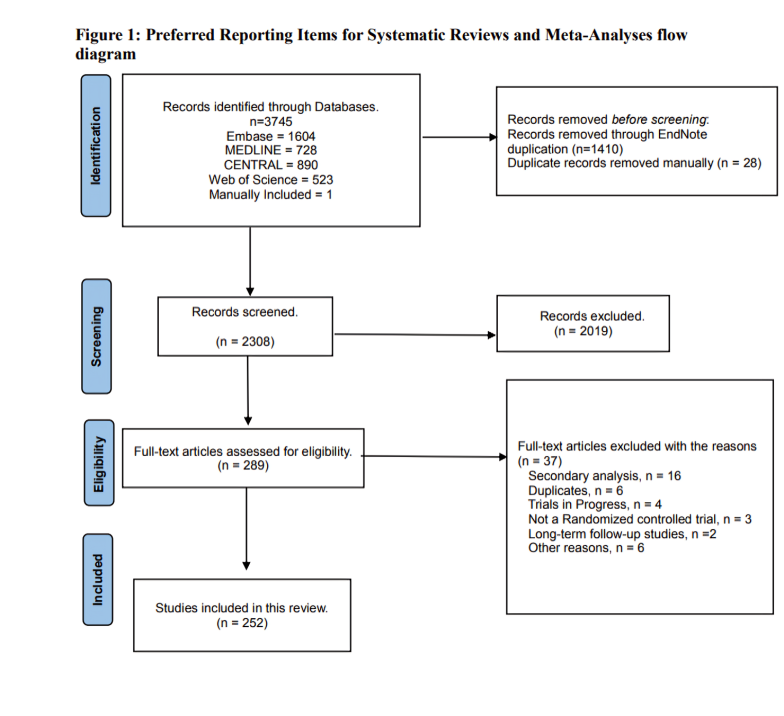
These 252 RCTs involved 31,067 patients!
– Median sample size was only 71
– Most trials (73%) were conducted in the adjuvant setting!
So what were the most common primary endpoints?
As this figure shows, most trials measured direct effects of nutrition such as weight/body composition/muscle mass or translational endpoints, or feasibility.
A very small minority measured cancer directly (response rate/PFS) or overall survival.
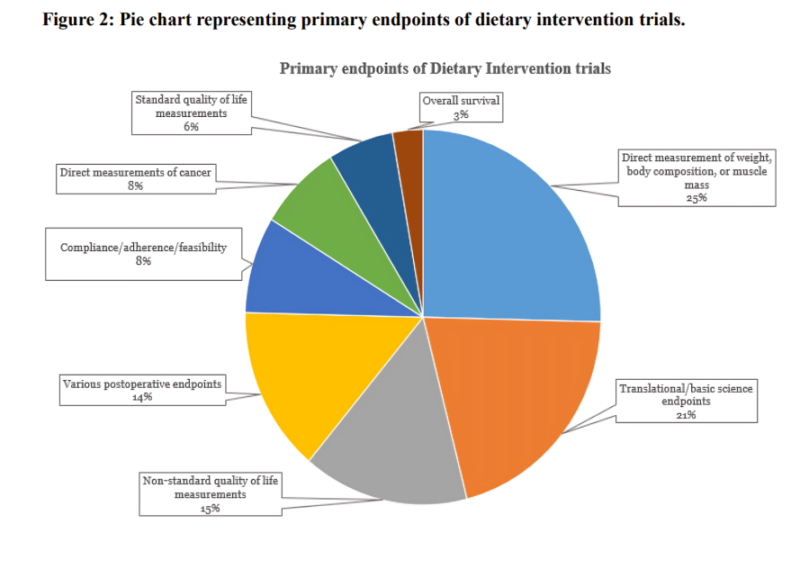
You can see here quite clearly:
Trials powered for compliance or translational endpoints of weight/composition are often successful.
But trials measuring cancer very rarely meet their primary endpoint.
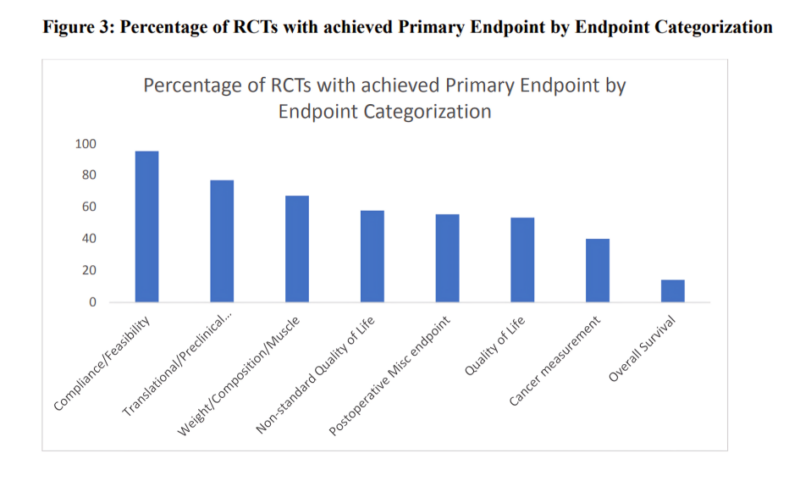
The largest well done RCT’s measuring cancer directly and testing a cancer endpoint usually all turned out negative (i.e did not change cancer burden)- even though these trials did actually change peoples diet successfully (as in compliance was enough to change diet).
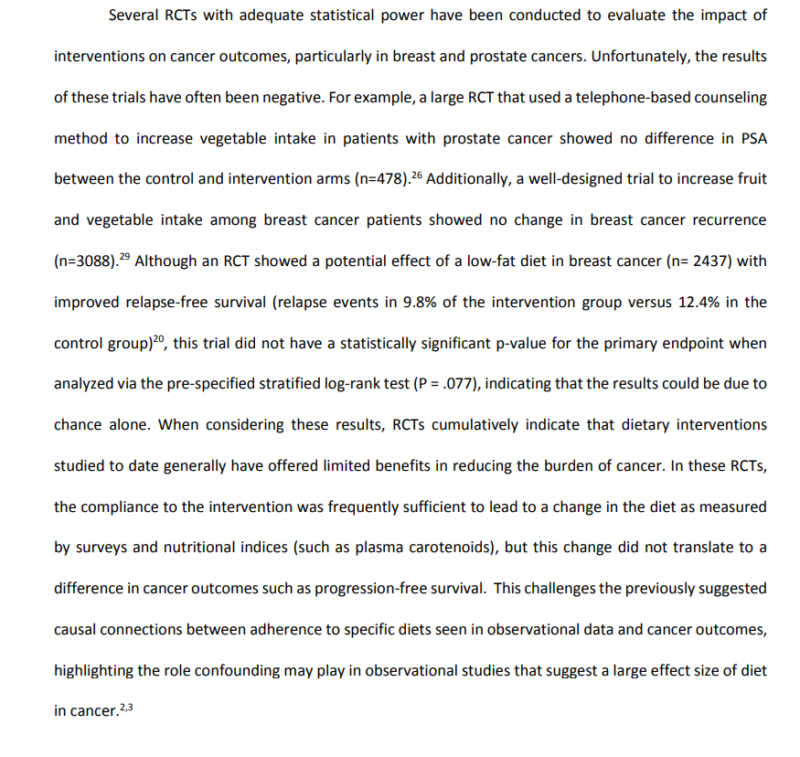
Does this mean diet has no role in cancer?
We do not imply that.
Diet has numerous benefits, and people with cancer should be given general dietary advice to improve their life.
It is just that one specific diet has not (yet) shown that it can change the trajectory of cancer.
Our study has numerous limitations, highlighted below.
The absence of evidence does not mean evidence of absence (of every single diet intervention in every single cancer).
We need funding for bigger studies asking the right questions, as these questions are important to patients.
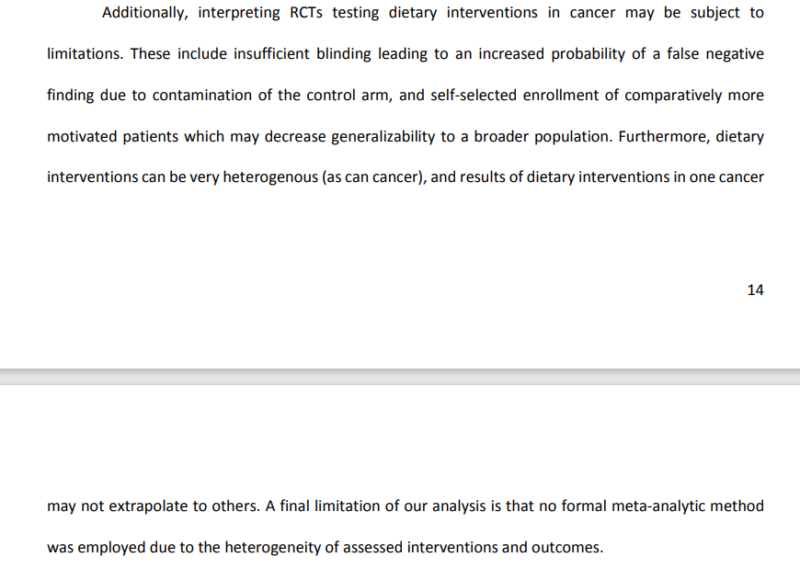
Even though we attempted to be comprehensive, it is possible we missed some studies.
This study of Mediterranean diet in breast cancer (which also was negative) was published after our data had been collected and was not included.
To patients my advice:
It is unlikely any one diet will change the trajectory of cancer. Eat healthy. Eat what makes you happy. You are going through a tough time, this is not the time to impose stringent restrictions on yourself. Feel no guilt for what you’ve ate in the past.
I thank you all for reading this thread.
I am very thankful to the amazing trainees for leading this, and to my mentors and friends.
I’ll add one more thing.
Eating plants is good for the world/climate change. But people with cancer are not the right population to be practicing this advocacy on. Leave them out of it. As oncologists, our foremost goal is their comfort and well-being.”
Source: Manni Mohyuddin/X
